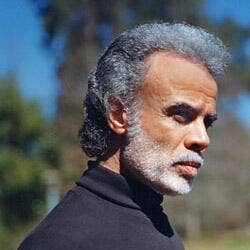About Harry J. Aponte
I am a psychotherapist who has a special interest in how therapists use their own person - gender, race, culture, life experiences, and most particularly their own personal human woundedness and vulnerabilities - to relate, understand and intervene at greater depth with clients/patients. I teach, train and supervise therapists to use their personal life experience to potentiate their therapeutic skills more effectively and empathically through a training I call The-Person-of-the-Therapist-Training-Model.
The relationship between client and therapist is the medium through which therapists gain the trust of clients, come to understand them at a personally human level, and know how to sensitively and intuitively support their clients' efforts to successfully deal with their personal life challenges. The very nature of the professional task of therapy calls for therapists to implement their learning and skills through what they bring of themselves to the therapy encounter by finding something in their own life journeys through which to resonate therapeutically with their clients' pain, anxieties, conflicts, losses and discouragements.
In general, the basic training of therapists offers models of thinking and intervening to effect positive change in people and solutions to their problems. However, from the very beginning of talking therapy (think here Sigmund Freud) there has been an awareness of the need to help the human beings who personally engage clients/patients utilize fully all of their therapeutic potential - their technical skills along with their natural human empathy and intuition. There has been an awareness that we as therapists have our own personal issues that color our thinking and shape our behavior with clients, but however technically proficient we may be in our craft, those personal issues of ours can be detrimental to our work with clients/ patients. From the days of individually oriented psychoanalytic thinking to more recent systemic perspectives, trainers in the field have been developing methods of helping therapists limit the potential toxicity of their personal hang-ups in the therapy they conduct. The trainers have geared their efforts toward helping therapists resolve personal issues of theirs through individual analysis/therapy or family interventions.
This is where the Person-of-the-Therapist (POTT) model of training comes in. This approach to training therapists in the use of their personal selves in the therapeutic process places a special emphasis on working through the personal emotional “woundedness” of the therapist, which we call the therapist’s signature theme. The core premise is that every one of us has certain personal issues, often revolving around a main theme that has been and will be with us throughout life. This signature theme, while from one view constitutes a stumbling block in the therapeutic process, from another offers a challenge that amounts to an opportunity to stretch and transform therapists into more insightful, empathic and self-mastered clinicians. For therapists, this effort implies that knowing, being in touch with and contending with their own personal issues can help them make sense of, resonate to, and engage the core issues their clients face more intuitively and at greater depth.
I have chosen to translate the POTT philosophy into a structured and detailed training model for therapists, published in a book entitled, The Person of the Therapist Training Model; Mastering the Use of Self (edited by myself and Karni Kissil, Routledge, 2016). In this book, we chart a new path for this training of the therapist's person, by manualizing this essential aspect of the formation of clinicians, the conscious and purposeful use of the therapist’s personal self within the therapist's professional role. We take a process that often seems vague and elusive, and provide a step-by-step description of how to conceptualize, operationalize and implement a training program designed to facilitate the creation of effective therapists who are particularly skilled at purposefully using their whole selves when putting into practice their technical training. In this approach to training, we present the theory and thinking behind this methodology, and demonstrate its application as practically and vividly as we could to facilitate others’ learning from it and building on it to fit their own clinical practice. This model about the use of self is something I personally believe in, and is at the core of my own professional practice that aims to humanize at greater depths the therapeutic process.
Please visit my website to learn more about me and my work.


